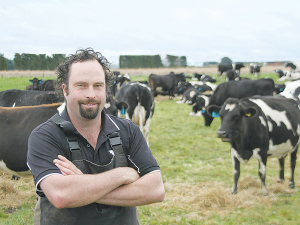Farmers are crying foul over changes announced by the Government this week to the Accredited Employer Work Visa (AEWV) scheme.
Federated Farmers dairy chair and immigration spokesman Richard McIntyre says the changes “have caused a lot of concern and confusion”.
Many farmers rely on migrant workers to work on dairy farms and orchards. McIntyre claims the changes came into force immediately and will make things a lot harder for farmers who are trying to bring in staff from oversees.
The changes include a shorter visa length of two years with a maximum continuous stay period of three years, and the introduction of a 12-month stand-down period at the end of the visa. There are also new minimum requirements when it comes to skills, work experience, advertising roles, and engaging with Work and Income.
McIntyre says Federated Farmers do not support many of these changes and have written to the Immigration Minister, Erica Stanford raising concerns and requesting an urgent meeting to discuss them.
“We’re concerned that these sudden changes will put a number of farmers in a difficult and unforeseen situation where they are unable to fill roles this season,” he says.
“This is a significant issue. Staff shortages can have a huge impact on health & safety, mental wellbeing, and animal welfare.
“There is also a risk that the standdown requirement will create a situation where skilled employees, who farmers have invested in, are picked up by other countries.”
According to Federated Farmers the key changes to the AEWV scheme are focused on those migrant workers who are entering, or have entered, New Zealand to work in ANZSCO Level 4 and 5 skill level roles. These changes apply from 7 April 2024. They include:
- A shorter visa length of two years for those who applied for their first AEWV after 7 April 2024, with a maximum continuous stay period of three years
- The introduction of a 12-month stand-down period at the end of the AEWV for migrant workers
- An English language requirement of migrant workers
- A minimum skills and work experience requirement of migrant workers
- A requirement to advertise vacancies longer (increasing from 14 days to 21 days) of employers; and
- A requirement for employers to engage with Work and Income.


















